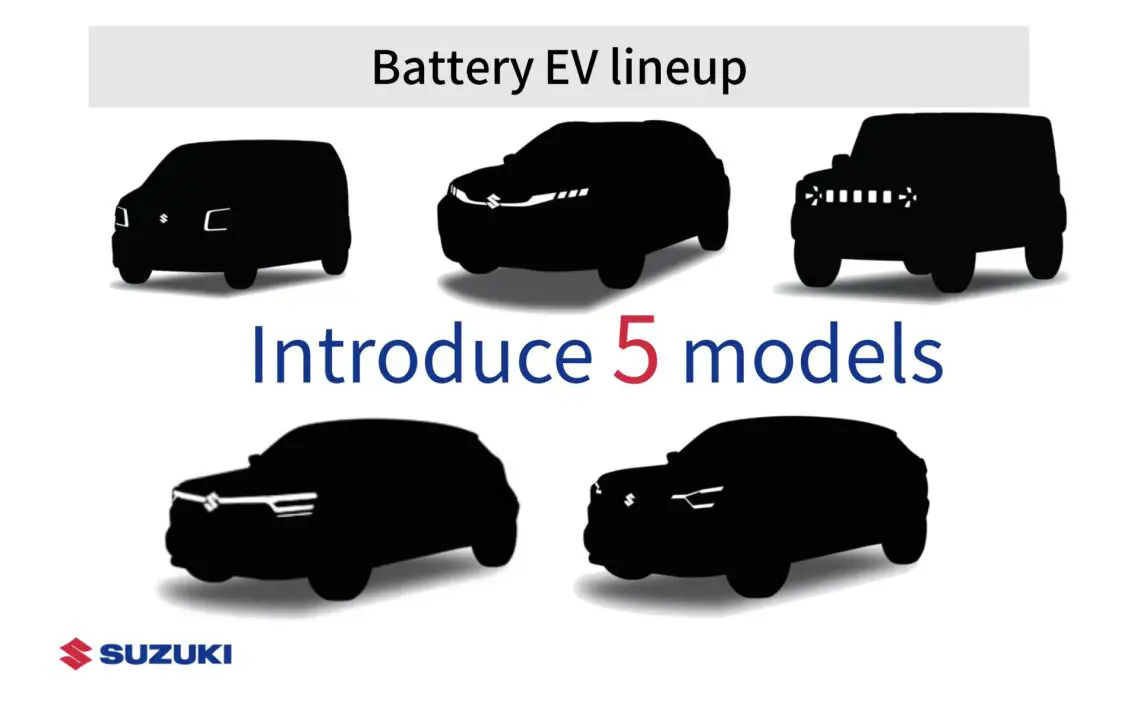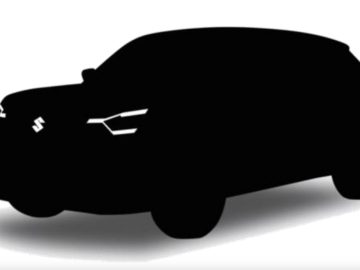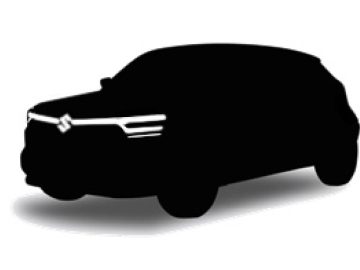Suzuki is coming out with five electric cars, including Jimny EV!
Suzuki Jimny Electric
In a nutshell, Suzuki will come out with as many as five electric passenger cars in Europe between the financial year 2024 and 2030. These are mainly crossovers, but also smaller models in the B-segment. In the released photos from Suzuki, we can already get a bit of a look at the models. The Suzuki Jimny Electric, of course, immediately stands out. The other models do not have a name yet, but one will probably be called Suzuki eVX.

Hybrids also remain important
Suzuki responds flexibly to environmental regulations and customer needs in all European countries. To meet the diverse needs of customers, Suzuki continues to provide models with an internal combustion engine, be it a hybrid powertrain or a power source with a carbon-neutral fuel, such as CNG, biogas or mixed enthanol. There are six EVs in the pipeline for the Japanese market and six for India as well.
Also electric motorcycles and outboard motors
Suzuki is also coming out with eight EV motorcycles between FY2024 and FY2030, ranging from small to medium-sized two-wheelers. For larger leisure motorcycles, Suzuki is considering using carbon-neutral fuels. And small outboard motors have to go too. For FY2030, the brand has five EV outboards in its lineup. For large outboard engines – suitable for the world’s oceans – Suzuki Marine is considering using carbon-neutral fuels.




Carbon Neutrality
Suzuki further announces in its future plans that it will focus heavily on achieving carbon neutrality. Suzuki aims to achieve carbon neutrality in Japan and Europe by 2050.
Suzuki Kosai and Suzuki Hamamatsu
At the Kosai plant – Suzuki’s largest production hub in Japan – the brand aims to reduce CO2 emissions from paint facilities by 30 percent. The Kosai plant also produces green hydrogen from renewable energy sources, such as solar power. That, too, sounds promising. At the Hamamatsu plant – the motorcycle production center – carbon neutrality should be achieved as early as FY2027, earlier than the original target of FY2030.
By reducing energy consumption and switching to renewable energy, including the expansion of solar power generation facilities, this should be achievable. By applying the know-how gained at the Hamamatsu plant to other plants, Suzuki aims to achieve carbon neutrality of all domestic plants as early as FY2035.
Suzuki Smart Factory Creation
Through Suzuki Smart Factory Creation, the company is drawing a blueprint of what manufacturing should look like in 2030. The company combines a simpler production method with digitization to optimize, minimize and simplify the entire process.
Cooperation with Toyota Motor Corporation
Suzuki and Toyota continue to cooperate with each other. Among other things, the two parties are working together on the development of autonomous driving cars and electric car batteries. Suzuki is further investing 2 trillion yen in electrification-related business through FY2030, including 500 billion yen in battery-related investments. Suzuki is further investing 2 trillion yen in R&D in areas such as carbon neutrality like electrification and biogas, as well as autonomous driving assistance systems. It also plans to invest 2.5 trillion yen for capital expenditures in facilities, including the construction of a BEV battery plant and renewable energy facilities.

